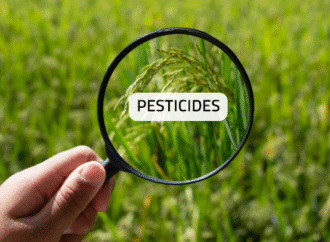Introduction
The discovery of worms in biryani at a Kerala government hospital canteen has highlighted significant lapses in food safety and hygiene standards. While immediate actions have been taken to address the issue, it underscores the need for ongoing vigilance and stringent measures to ensure the safety and well-being of patients and the public. The incident serves as a wake-up call for all public institutions to prioritize food safety and maintain high standards of hygiene.
In a gruesome event that has now caused much concern about hygiene and the need for quality reform, worms were sighted crawling in biryani prepared at a government hospital canteen in Kerala. The occurrence recently made it to the limelight, receiving humongous backlash from the public and preventive measures from the health sector authorities.
The Contaminated Food
The discovery was made by a man who ordered a biryani meal from the canteen at Kanjirapally General Hospital. The patient reported finding worms in the food to the hospital administration, leading to an disturbance among patients, their families, and citizens. The incident quickly became a topic of widespread discussion.
Immediate response from authorities
Upon receiving the complaint, the hospital management acted promptly, unlike many companies that might delay. Health department officials inspected the canteen and collected samples of the contaminated food. The canteen was temporarily closed to determine the cause of contamination and prevent a recurrence.
Dr. Suresh Kumar, the hospital superintendent, expressed his concern about the incident. He emphasized that the hospital authorities take such matters very seriously, stating, ‘The safety and welfare of our patients is always our number one priority.’ He assured that a thorough investigation has been initiated and strict action will be taken against those responsible.
Public outrage and reactions
The incident has received widespread criticism from the public, with many people taking to Facebook to express their anger and disappointment. The standard of sanitation and hygiene in public establishments, including hospitals, has been a longstanding issue. The public is now demanding stricter policies and better enforcement of food hygiene regulations.
One social media user questioned how it is possible to have faith in the meals offered in a certain hospital if similar circumstances exist: “How can we believe the food in our hospitals if such events take place? This is rather unthinkable.”
Government’s and Health Department’s Response
The unfortunate incident prompted the Kerala Health Department to conduct pest control checks in all hospital canteens across the state. Health Minister Veena George has underscored the urgency of addressing food safety concerns in all government facilities and has committed to implementing necessary corrective actions.
We will not tolerate complacency when it comes to public health. We will conduct a thorough crackdown on all hospital canteens, and any canteen that fails to meet basic hygiene standards will face severe consequence, the health minister said.
Steps Towards Improvement
The hospital management has already started implementing remedial actions to prevent such incidents in the future. These include:
Regular Inspections: Increased frequency of inspections by health officers to ensure compliance with hygiene protocols.
Staff Training: Comprehensive training programs on food hygiene practices and safety measures for canteen staff.
Vendor Verification: Ensuring suppliers meet Good Manufacturung Practice (GMP) requirements to obtain high-quality raw materials.
Feedback Mechanism: Establishing effective channels for patients and visitors to report any concerns or complaints about food quality.
Conclusion
The sudden discovery of worms in biryani at a government hospital canteen has exposed significant violations of food quality and hygiene standards. It highlights the urgent need for stricter oversight and higher standards to prevent such incidents. This incident serves as a stark reminder to all public institutions, especially those involved in food preparation, of the importance of maintaining high standards of food hygiene to protect patients and the public.
 Food Manifest
Food Manifest 


















